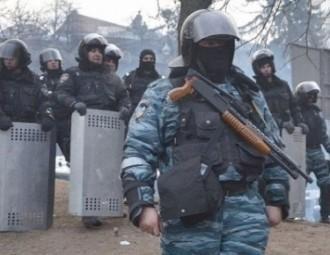Aftermath of clashes in Kiev: two people reported dead
 photo by vesti.ua
photo by vesti.ua
“Berkut” fighters shot at the protesters.
Media reports claim that medics declared two people dead near the barricades amid fresh clashes between police and protesters.
Protesters say one of the dead was shot by police, but that cannot be confirmed, RFE/RL reports. The Interior Ministry confirmed one death.
Hundreds of riot police appear to have regrouped near the barricades as protesters hurled rocks and petrol bombs.
Earlier, Ukrainian Prime Minister Nikolai Azarov said government security forces will use force against anti-government protesters in Kyiv if "provocateurs" do not stop their activities.
Speaking to the Russian television station Rossia 24, Azarov blamed clashes between protesters and riot police in central Kyiv since January 19 on opposition leaders. "The responsibility, first and foremost, lies with those leaders of opposition parties who created this situation," Azarov said.
Azarov denied that his government is planning to declare a state of emergency to deal with Ukraine's crisis, saying that existing legislation gives security forces the authority to use force. "Should provocateurs fail to stop, the government will have no other choice but to use the force it has the authority to use according to the law in order to protect our people from this kind of scenario," Azarov said.
Let us recall that the violent clashes in Kyiv since January 19 have left hundreds of people injured and police vehicles destroyed.
-
03.01
-
07.10
-
22.09
-
17.08
-
12.08
-
30.09










































